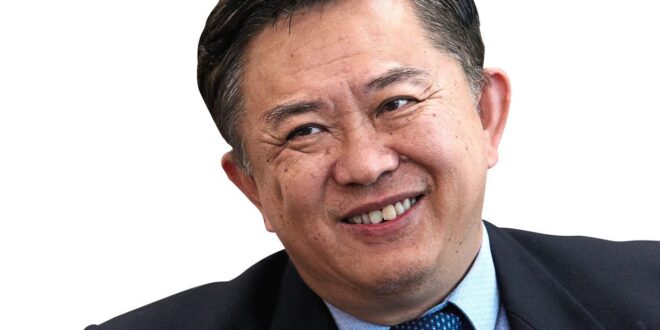THE Malaysian Palm Oil Association (MPOA) opines that significant strides have been made in mechanising a multitude of non-harvesting operations within oil palm plantations, including in-field crop evacuation, fertilisation application and weeding. The integration of cutting-edge technologies such as drones and digitalisation has also further enhanced operational efficiency.
Despite these advancements, the key challenge lies in the absence of effective mechanisation solutions for essential harvesting-related tasks, specifically cutting and collecting loose fruit. Harvesters in non-mechanised oil palm operations constitute up to around 50% of the workforce, underscoring the pivotal role these tasks play in the industry.
Finding effective solutions will involve multi-disciplines, high investment and long-term pursuit. Collaborative efforts between the government, industry and other relevant stakeholders will be pre-requisites to implement initiatives going forward.
Until viable solutions become available and are ready for commercial implementation, any workforce reduction measures should be deferred. Ensuring the industry retains its existing labour force during this transitional period is imperative to maximise production, including to alleviate the plight of the smallholders and meet the demand of the palm oil supply chain.
The recent approval for the 40,000 renewed quota for foreign workers comes as a relief to the plantation sector. MPOA estimates that if all 40,000 workers are recruited as harvesters, the additional revenue that can be generated is almost RM8bil per year based on current CPO prices.
We welcome newly minted Plantation Industries and Commodities Minister Datuk Seri Johari Abdul Ghani’s proposal to integrate palm oil harvesting into Technical and Vocational Education and Training (TVET) programmes to help address the long-standing labour shortage issue. At present, the larger segment of the industry uses a land-to-labour ratio: For every eight hectares of oil palm planted area in Peninsular Malaysia, one worker is required.
While the industry has made many attempts to attract local workers into plantation work, challenges persist. Recruitment drives have not been successful in attracting the numbers needed nor retention, indicating the need to explore more innovative solutions.
The Minister’s proof-of-concept involves kick-starting an initiative to train aspiring locals to be dedicated harvesters focused on pruning and cutting. The first batch of 60 trainees will start their training this month under the Ministry’s Institut Perladangan dan Komoditi Malaysia (IMPAC). Johari reiterates that the success of this scheme depends on cooperation from the industry stakeholders.
His proposal also includes ‘training the trainers’ under the TVET programmes, which we opine could play a pivotal role in developing skilled supervisors equipped with necessary know-hows on harvesting.
The industry also commends the Minister’s initiative aimed at enhancing fresh fruit bunches’ (FFB) yields through the establishment of site-specific smallholder clusters of between 8,000ha and 10,000ha to be managed by larger plantation companies.
The MPOA opines that a staged approach can help overcome obstacles and identifying site-specific clusters of smallholders and selecting synergistic partners to manage the commercial aspects of this initiative will be critical.
Leveraging on existing smallholders’ platforms — such as the 69 smallholders’ cooperatives ie KPSMs (Koperasi Penanam Sawit Mampan) and the 162 Sustainable Palm Oil Clusters under the Malaysian Sustainable Palm Oil (MSPO) certification clusters — to identify pilot business partnerships would be a strategic move. The Malaysian Palm Oil Board’s (MPOB) TUNAS team can be harnessed as potential drivers to initiate the process.
The success of the initiative hinges on getting the right fit and effective political intervention. The commercial collaboration between smallholders and large plantation companies must be economically viable to ensure long-term sustainability.
The industry stakeholders have also been assured that the Minister will engage the the Ministry of Finance (MoF) on the Windfall Profit Levy (WPL). The sector is appealing for a revision of the WPL’s levy rates and the CPO price-threshold for a fair and equitable taxation.
Since its inception in 1999, the WPL has been levied exclusively on all oil palm planters (excluding small- holders) and not on other profitable business sectors in Malaysia. In 2022 and 2023, the WPL saw oil palm planters forking out over RM3.02bil and RM922mil respectively.
We also welcome the Minister’s proposal to enhance communication efforts with NGOs and consumers. Innovative efforts are necessary as it remains arduous to change the prevailing negative perception of palm oil set against the interplay of trade and non-tariff barriers.
Malaysia is on the right track to obtain the European Union’s (EU) “green light” before the implementation of the EU Deforestation Regulation (EUDR) by Dec 31, 2024, which will entail the recognition of the MSPO certification. It is imperative to ensure that the estimated 450,000 smallholders in Malaysia will not be marginalised from the supply chain by the introduction of the EUDR.
We also commend the Minister’s call for the industry to explore avenues for increasing revenue by tapping into the potential of oil palm biomass. The oil palm trees present significant biomass business opportunities, with approximately 10% currently utilised for their FFB-yielding CPO and palm kernel.
The commercial success of biomass-related initiatives hinges ultimately on their economic viability. Biomass factories or plants often require substantial capital investments and would necessitate government incentives to drive for larger footprint implementation.
The introduction of the ministry’s National Biomass Action Plan 2023-2030, coupled with the government’s New Industrial Master Plan 2030 (NIMP 2030) and Malaysia’s National Energy Transition Roadmap (NETR), signify strategic policies and environment for enhancing oil palm biomass commercialisation. The emphasis on abating methane, as highlighted in COP28’s priorities for 2030, further underscores the national commitment to sustainable endeavours.
These policy initiatives offer opportunities aligning with the goal to enhance oil palm biomass utilisation, but they must be business-viable and sustainable.
This article first appeared in Star Biz7 weekly edition.
 BeritaKini.biz Berita Viral Terkini di Malaysia
BeritaKini.biz Berita Viral Terkini di Malaysia





